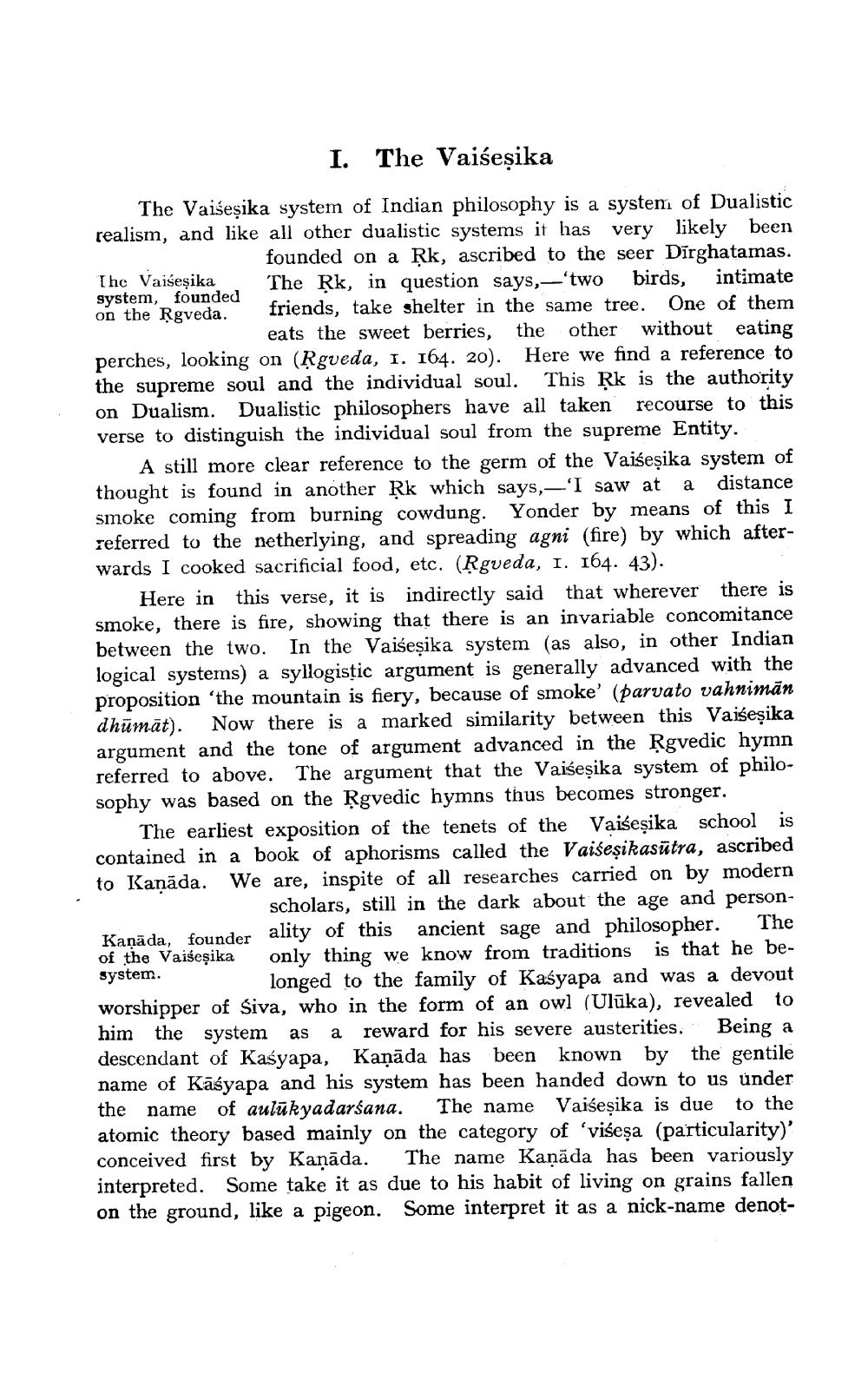________________
1. The Vaiseșika
The Vaišesika system of Indian philosophy is a system of Dualistic realism, and like all other dualistic systems it has very likely been
founded on a Řk, ascribed to the seer Dirghatamas. The Vaišeşika
The Ķk, in question says,-'two birds, intimate system, founded on the Rgveda.
friends, take shelter in the same tree. One of them
eats the sweet berries, the other without eating perches, looking on (Rgveda, 1. 164. 20). Here we find a reference to the supreme soul and the individual soul. This Rk is the authority on Dualism. Dualistic philosophers have all taken recourse to this verse to distinguish the individual soul from the supreme Entity.
A still more clear reference to the germ of the Vaisesika system of thought is found in another Rk which says,-'I saw at a distance smoke coming from burning cowdung. Yonder by means of this I referred to the netherlying, and spreading agni (fire) by which afterwards I cooked sacrificial food, etc. (Rgveda, 1. 164. 43).
Here in this verse, it is indirectly said that wherever there is smoke, there is fire, showing that there is an invariable concomitance
ween the two. In the Vaisesika system (as also, in other Indian logical systems) a syllogistic argument is generally advanced with the proposition the mountain is fiery, because of smoke' (parvato vahnimān dhūmāt). Now there is a marked similarity between this Vaiseşika argument and the tone of argument advanced in the Rgvedic hymn referred to above. The argument that the Vaiseșika system of philosophy was based on the Rgvedic hymns thus becomes stronger.
The earliest exposition of the tenets of the Vaiseșika school is contained in a book of aphorisms called the Vaišeşikasütra, ascribed to Kanäda. We are, inspite of all researches carried on by modern
scholars, still in the dark about the age and personKanāda founder ality of this ancient sage and philosopher. The of the Vaiseșika only thing we know from traditions is that he besystem.
longed to the family of Kaśyapa and was a devout worshipper of Siva, who in the form of an owl (Ulūka), revealed to him the system as a reward for his severe austerities. Being a descendant of Kaśyapa, Kanāda has been known by the gentile name of Kāśyapa and his system has been handed down to us under the name of aulūkyadarśana. The name Vai esika is due to the atomic theory based mainly on the category of 'višeşa (particularity)' conceived first by Kanāda. The name Kanäda has been variously interpreted. Some take it as due to his habit of living on grains fallen on the ground, like a pigeon. Some interpret it as a nick-name denot




